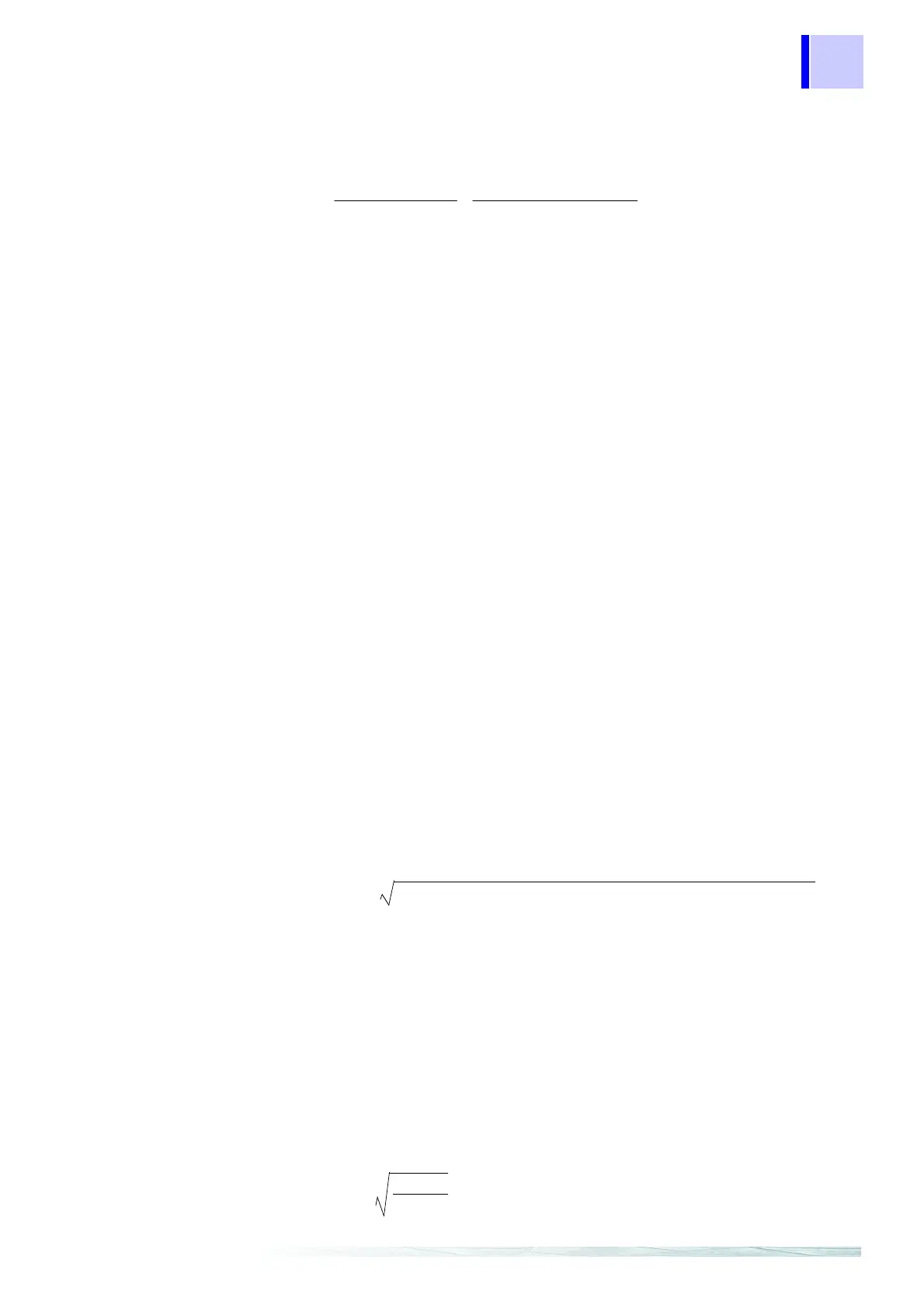6.6 Flicker
105
Weighting Filter
Processing uses one of three selectable weighting filters, a filter of 230
V lamp, 50 Hz systems, a filter for 120 V lamp, 60 Hz systems, and a
filter for 100 V lamp, 50 Hz or 60 Hz systems.
• 230 V lamp 50 Hz system
k = 1.74802
λ = 2π4.05981
ω
1
= 2π9.15494
ω
2
= 2π2.27979
ω
3
= 2π1.22535
ω
4
= 2π21.9
• 120 V lamp 60 Hz system
k = 1.6357
λ = 2π4.167375
ω
1
= 2π9.077169
ω
2
= 2π2.939902
ω
3
= 2π1.394468
ω
4
= 2π17.31512
• 100 V lamp 50 Hz or 60Hz system
k = 1.52067
λ = 2π4.05217
ω
1
= 2π9.01508
ω
2
= 2π4.12991
ω
3
= 2π1.68945
ω
4
= 2π18.9417
Statistical
Processing
Statistics on flicker are compiled by applying the cumulative probability
function (CPF) to 1,024 logarithmic divisions of instantaneous flicker
values S(t) in the range from 0.0001 to 10000 P.U. to obtain cumula-
tive probabilities P0.1, P1s, P3s, P10s, and P50s.
Short Interval
Flicker Value
Pst
This indicates degree of perceptibility (severity) of flicker measured
over a 10-minute period.
Calculation:
Pst =
P50s = (P30+P50+P80)/3
P10s = (P6+P8+P10+P13+P17)/5
P3s = (P2.2+P3+P4)/3
P1s = (0.7+P1+P1.5)/3
P0.1 is not smoothed
Long Interval
Flicker Value
Plt
Indicates the degree of perceptibility (severity) of flicker determined
from successive Pst measurements over a 2-hour period.
To calculate a moving average of Pst, the displayed value is updated
every 10 minutes.
Calculation:
Plt =
/1)(/1(
2
43
2
2
1
2
1
ωω
ωλω
ss
S
++
+
•
++
0.0314P0.1+0.0525P1s+0.0657P3s+0.28P10s+0.08P50s
3
ΣPsti
3
N
